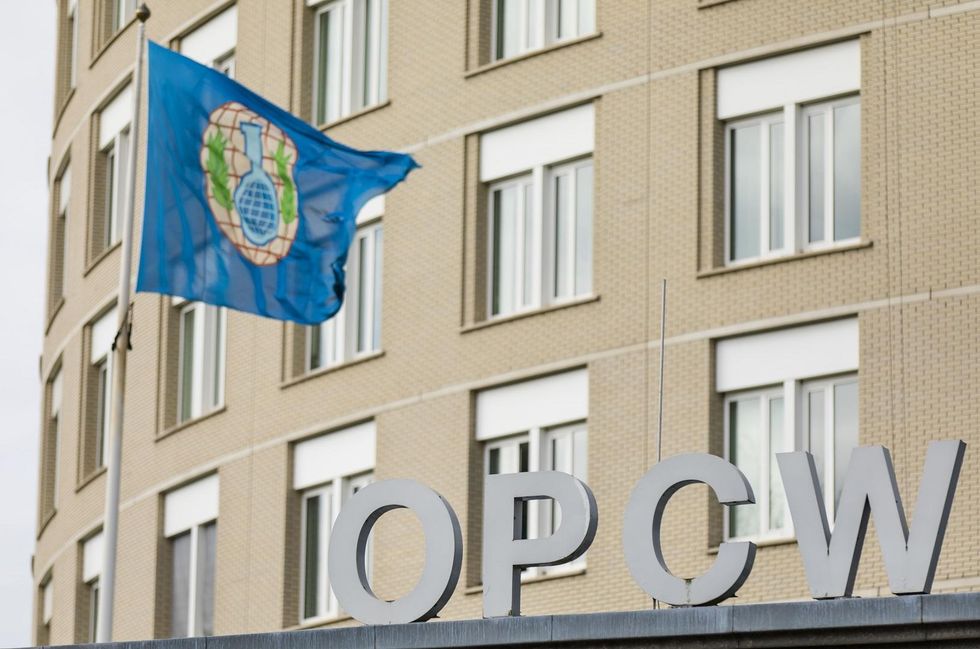British, Australian, and Dutch authorities have accused Russia's GRU intelligence agency of being behind cyberattacks against both the Organisation for the Prevention of Chemical Weapons and the investigation into Malaysian Airlines flight MH17, which was shot down over Ukraine in 2014.
On Thursday, the U.S. Department of Justice indicted seven GRU officers on a range of charges, including the OPCW hacking.
What was the first attack?
The OPCW is an international chemical weapons watchdog based at The Hague in The Netherlands. In April, the OPCW was hit by a cyberattack while it was investigating the March poisoning of former Russian double agent Sergei Skripal and chemical weapons attacks in Syria. British and Dutch cybersecurity experts were able to fend off the attack.
After an unsuccessful remote attack, four Russian intelligence officers reportedly traveled to The Hague as part of a "cleanup" unit. On April 13, these men were discovered by Dutch authorities and sent back to Russia. Dutch authorities searched a rental car belonging to the men and found laptops with incriminating web history, maps, phones, cash, and an antenna that they determined had been pointed at the OPCW.
The head of Dutch counterintelligence confirmed that the OPCW was working on the Skripal investigation at the time but added that investigators “have not been able to prove that they targeted the OPCW because of the Skripal investigation.”
Skripal and his daughter were poisoned with the Soviet-made nerve agent Novichok. British investigators concluded that the Russian government was behind the attack, and that two GRU operatives had been sent to England to carry out the attempted assassination.
British Prime Minister Theresa May and Dutch Prime Minister Mark Rutte released a joint statement that stated in part: "This attempt to access the secure systems of an international organisation working to rid the world of chemical weapons demonstrates the GRU’s disregard for the global values and rules than keep us all safe."
What about the plane crash?
British authorities confirmed that the same men had attempted to launch cyberattacks against the investigation into the crash of Malaysia Airlines flight MH17. A group of international inspectors had determined that a Russian missile had shot the plane out of the sky.
Peter Wilson, the United Kingdom's ambassador to the Netherlands, said, "With its aggressive cyber campaigns, we see the GRU trying to clean up Russia’s own mess – be it the doping uncovered by Wada [the World Anti-Doping Agency] or the nerve agent identified by the OPCW."
Wilson said that in addition to these attacks, the GRU was active around the world, carrying out “brazen, close-access cyber operations.”
On Thursday, the Dutch Ministry of Foreign Affairs summoned the Russian ambassador and condemned Russia's "unacceptable" behavior with these attacks.
Perhaps predictably, Russia has denied these accusations. Russian Foreign Ministry spokeswoman Maria Zakharova said that these accusations were “big fantasies.”







